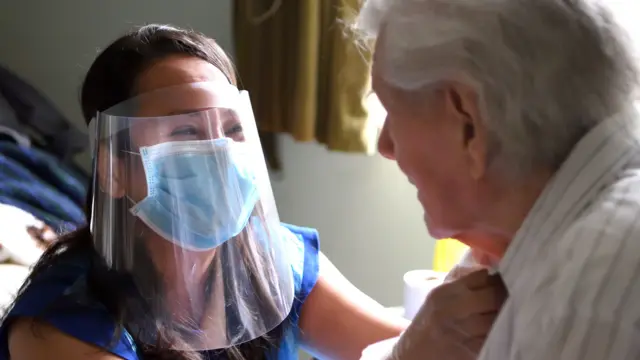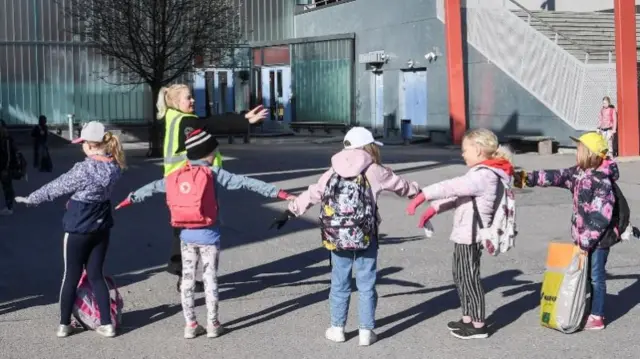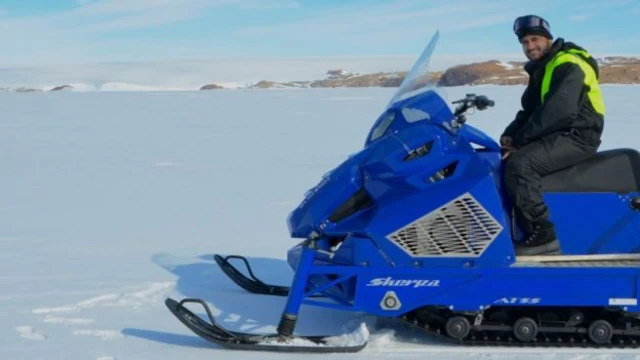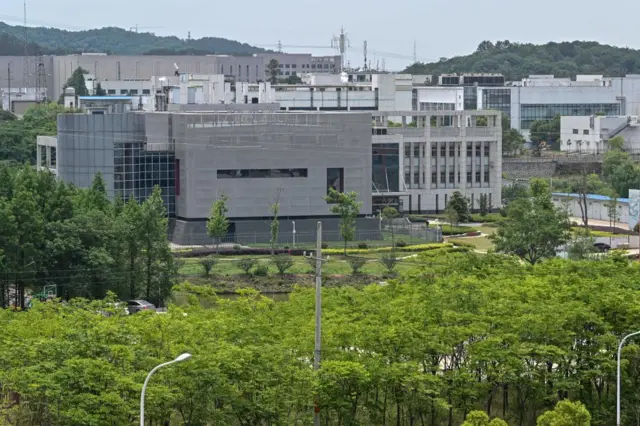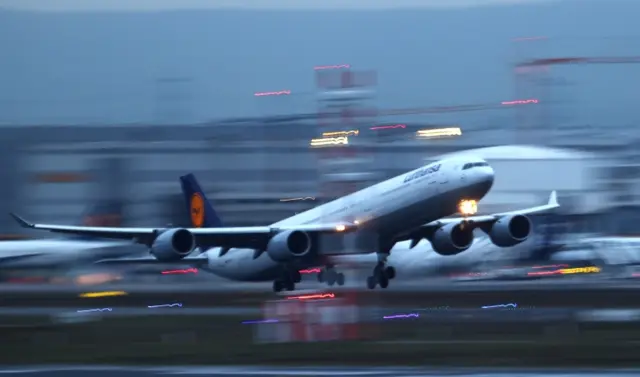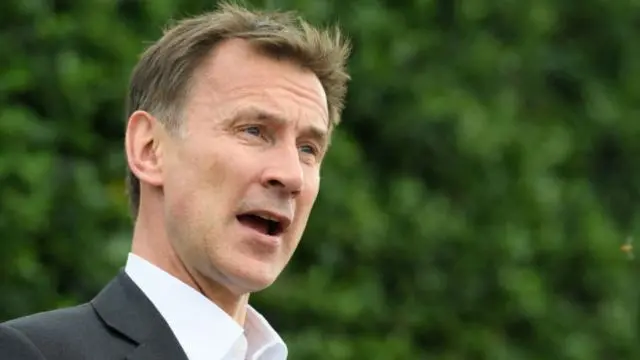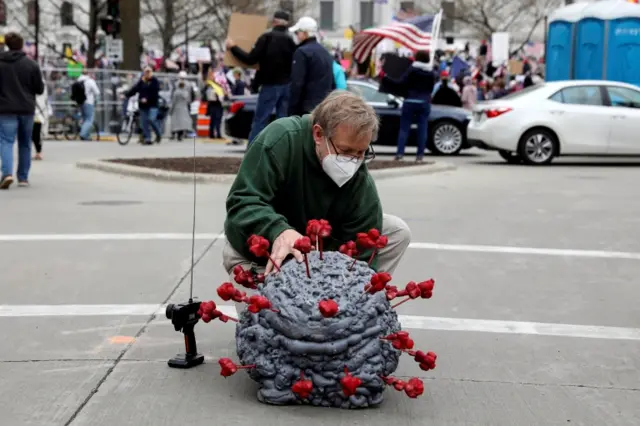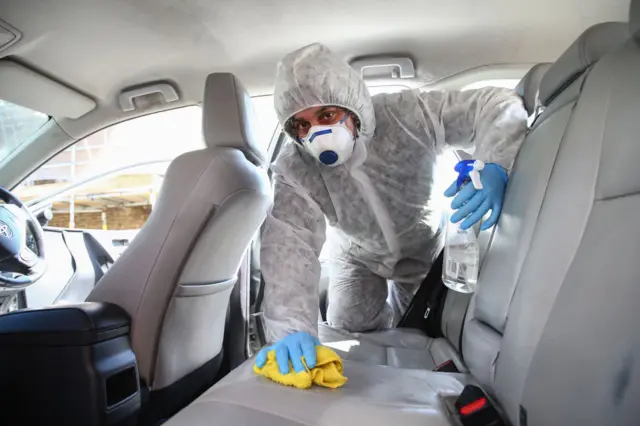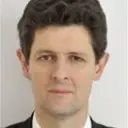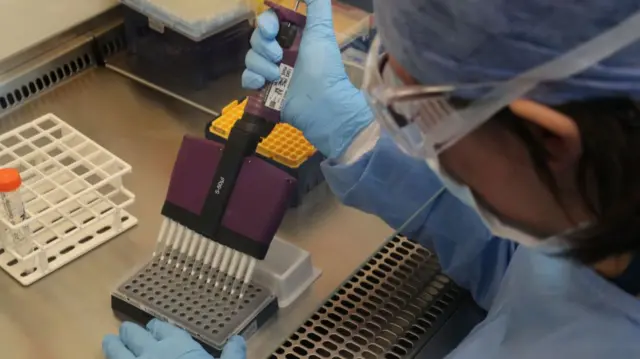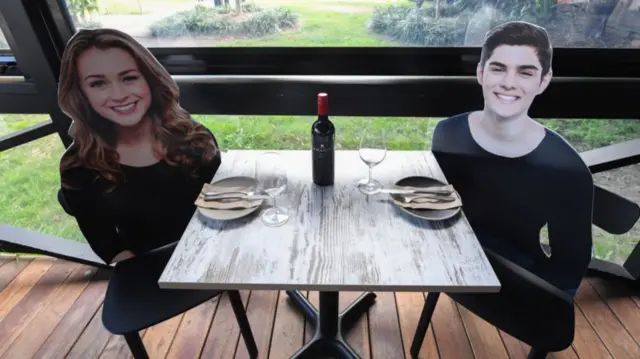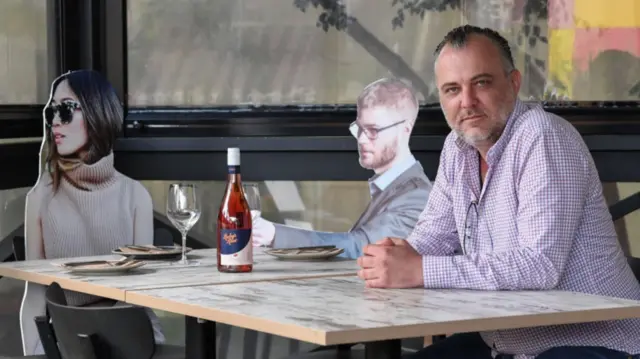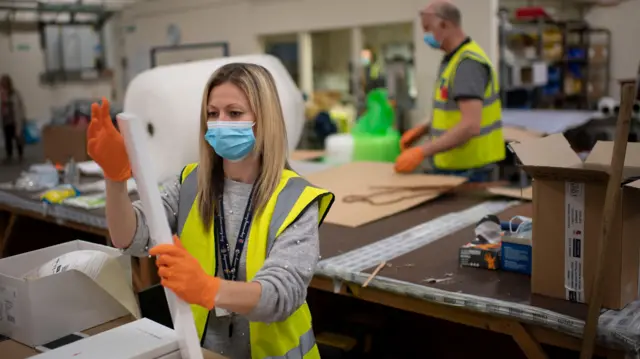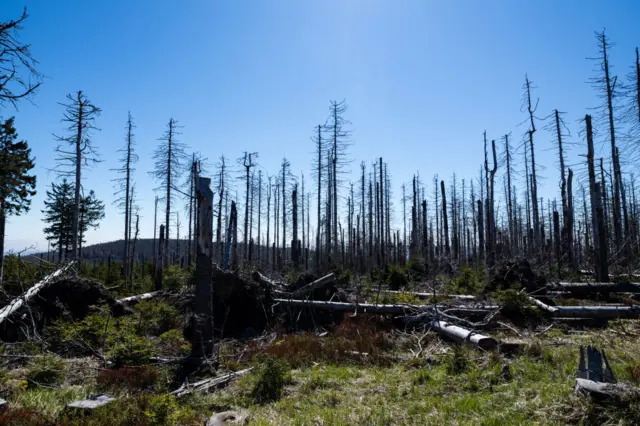Laid off crane operator gives lockdown families a liftpublished at 11:02 BST 14 May 2020
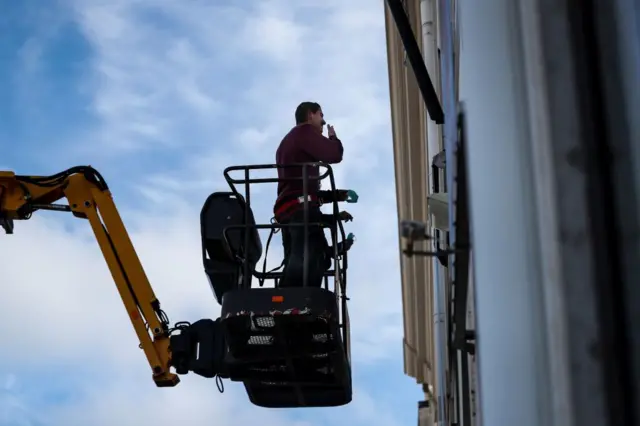 Image source, AFP
Image source, AFPA retirement home in Portugal allowed visitors to see relatives from a crane
We've seen a few stories since the pandemic began of people connecting with loved ones across balconies, from gardens outside care homes or just shouting across the street.
Now in Belgium one crane operator has taken things up a notch or two by offering his services to families separated by multiple storeys, external, reports Associated Press.
After losing his job, Tristan Van den Bosch drove his crane to homes in several towns and transported people to their relatives' windows.
“It’s been seven long weeks that I haven’t been able to see her,” one woman told AP after being lifted up to see her 88-year-old aunt in a care home. “It’s all quite emotional.”
Mr Van den Bosch isn't the only person to have the bright idea though. In Figueira da Foz, Portgual, two retirement homes offered the same service to their 150 residents earlier this month.

